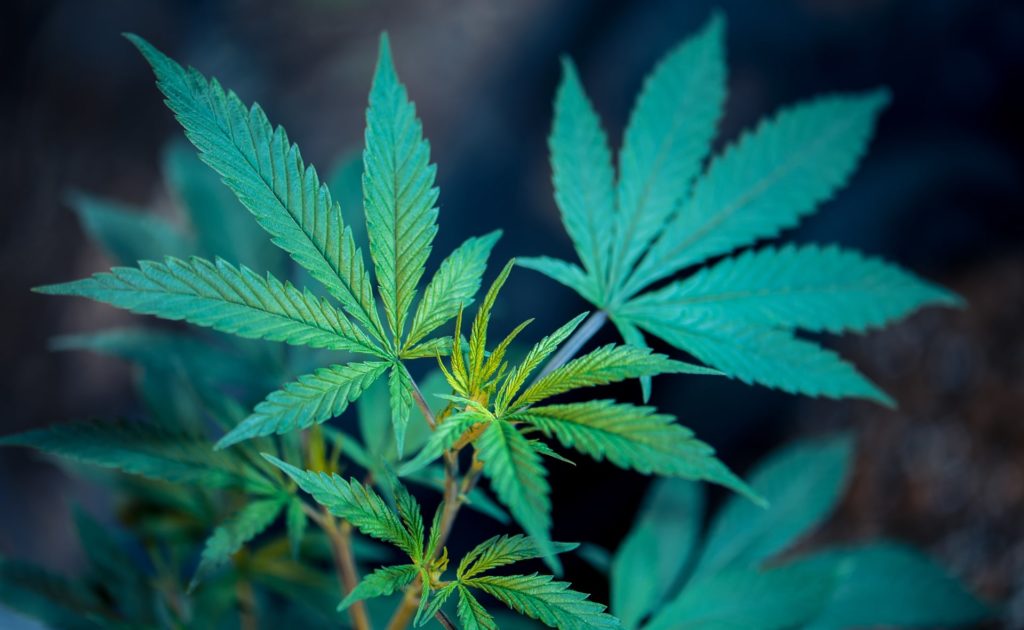The EIHA, also known as the European Industrial Hemp Association, has spoken up for the common interests of hemp farmers, producers, and traders ever since 2005. Seven hemp fiber-processing companies founded the association. Today, they have two offices in Brussels and Cologne. The EIHA is a growing international association. They now have partners in North America, APAC (Asia Pacific), and Asia.
The association follows and monitors the following policies: The Hemp Manifesto, CAP Reform, THC Residues in Food, The Status of Hemp Extracts in Europe & Novel Food Regulation, Hemp & the Environment, CosIng (Cosmetics Ingredients), Single Convention on Narcotic Drugs (1961), THC Limits in Animal Feeds, Life Cycle Assessment of Hemp Materials, and CO2 Impacts & Environmental Concerns.
What is Industrial Hemp?
Industrial hemp, which is more commonly known as hemp, is derived from the cannabis Sativa. It is grown for industrial uses and can be produced for other industrial products like textiles, clothing, biofuel, etc.
Cannabis is known as a drug, and contains THC (tetrahydrocannabinol), which gives psychoactive effects to the user, but industrial hemp only has a small amount of THC. It has a higher amount of CBD (cannabidiol), which prevents the user from experiencing mind-altering effects and instead, is used to create other industrial products. THC is illegal in some parts of the world, whereas CBD is not illegal.
THC is taken from a cannabis plant, and consuming it in high amounts would result in the consumer psychoactive and mind-altering effects. This would give the user the feeling of being high, happy, and creative.
CBD is also taken from the cannabis plant, but it contrasts THC. It gives the user the opposite of what THC provides. CBD helps a lot of patients in terms of lessening the effects of their symptoms. It doesn’t have mind-altering effects like CBD, but it helps relieve pain and offers a lot of medical benefits to the user.
Are Foods With Hemp Allowed In Europe?
Food with the parts of the cannabis Sativa plant, such as hemp flowers of hemp leaves, is considered as novel foods under the Novel Food Regulation. Only those that contain CBD isolates or CBD enrichment acting as an ingredient or individual substances aren’t considered as ”novel, ” under the Novel Food Regulation. Examples of hemp products are hemp seeds, hemp milk, hemp oil, hemp cheese substitutes, and hemp protein powder. Scientifically, the hemp flowers and hemp leaves contain CBD naturally, which is why they are prohibited. Foods with CBD isolates are already legal in certain places in Europe like Austria, Belgium, Denmark, Germany, Lithuania, Luxembourg, and Spain.

What Do You Mean By Novel Foods?
Novel foods are food or food ingredients without a history of “significant,” consumption in Europe. These types of food or ingredients are prohibited due to their components or the way it was produced. These include food that has gone through a complex process for it to be genetically modified. It is according to the legislation of the Novel Food Regulation. Anything that is considered novel has to be authorized by the European Commission by submitting scientific information and safety assessment reports.
Examples of food components that are considered novel are Astaxanthin, Chia, Stevia, and Miracle Fruit. They all have either harmful components or have not been approved by the FDA (Food and Drug Administration). Novel foods are recorded in the EU Novel Food Catalogue. It is also listed in the Union list. The Union list includes the different commissions implementing regulations that authorize different novel foods over the past years. As of now, there have been 125 entries listed in the Union List.
There is a type of novel food called “designer food.” The so-called designer food isn’t found anywhere else. Designer food is also dubbed as genetically modified food. This type of food is created through biotechnological and bioengineering methods. There is a process that is defined as an enhancement process called food nitrification or fortification. It is considered a novel food because there are cases wherein the modified food has unbelievable and unproven health claims. Some examples of designer food are designer milk, designer eggs, designer grains, and even probiotics. Some designer foods are often mistaken as a part of food design, which is an aesthetic arrangement of food.
What is the Novel Food Regulation?
Novel Food Regulation is a legislation that was established in January 2018. It improves conditions that would help food innovators bring in their production to the European market. The purpose of the legislation is to ensure that it maintains a high level of food safety for all Europeans, thus the prohibition of food with any parts of the hemp flowers, not the ones with just the CBD isolates and CBD enrichments. The regulation prioritizes all consumers’ safety, and it may take years to test certain food, but they do all of this for the safety of the people.
What are CBD Isolates?
CBD isolates are a form of CBD. It is a chemical compound found in cannabis, but it doesn’t contain THC. As the name suggests, the CBD is isolated from the terpenes and the tetrahydrocannabinol. It only contains CBD and nothing else. CBD isolates can be ingested, taken sublingually, mixed into other ingredients, or placed into food products. CBD isolates are legal and not considered a novel food or novel food ingredient because they do not contain the components from cannabis Sativa that cause mind-altering effects. CBD isolates or CBD enrichment are not novel foods.
Uses of CBD Isolates
CBD isolates have lots of benefits that greatly influence those who have medical conditions.
Following are the benefits:
Zero THC
CBD isolates are good for those beginning users of cannabis products.
Many modes of consumption
Using CBD isolates in many forms of product is such a great thing in the cannabis world.
Easier to dose
It is easier to dose the CBD isolates compared to other edible-consumed products which mixed with other forms leading to difficult measurement.
Novel Food vs Functional Food
A novel food may be contrasted with a functional food. While novel food is prohibited because of its components and its method of production, functional foods aren’t prohibited despite having psychological and physiological effects. Functional foods offer both psychological and physiological benefits. Additional nutrients like minerals, vitamins, and fibers are found in various functional foods. Despite the presence of additional nutrients, functional foods aren’t considered novel foods unless they contain any novel food or novel food ingredients.

The EIHA in-depth
EIHA is short for the European Industrial Hemp Association. They are the only consortium in the industrial hemp sector in Europe.
The association aims to:
- Support the cultivation, processing of industrial hemp.
- Collect necessary information on industrial hemp and policies, publish about the industry, and establish market figures and trends.
- Regulate normal conversations between members and other organizations about industrial hemp.
- Support communication about European policies.
- Provide factual and reliable information to the public about industrial hemp to show modernity of laws and guidelines to the Europeans.
The association was founded in 2000. It stresses hemp policies in the European Union. They are located in Brussels, Germany. Their present president is Daniel Kruse, and his subordinates are as of follows:
- Board Members
The EIHA board members are a total of seven people. The group consists of farmers, producers, and processors. The board acts on their behalf after having a conversation with the other members.- Boris Banas
- Rachele Invernizzi
- Mark Reinders (President)
- Lorenza Romanese (Managing Director)
- Daniel Kruse
- Catherine Wilson
- Bernd Frank (Treasurer)
- EIHA Secretariat
The EIHA Secretariat is located in Brussels, which is the capital of European decision-making. The members are: - Lorenza Romanese
She is EIHA’s Managing Director. She is in charge of the upper part of the plants like its seeds, leaves, and flowers. She is responsible for THC’s policy files in food and feed, novel food, and cosmetics. - Francesco Mirizzi
Francesco Mirrizi is the Senior Policy Advisor of EIHA. In contrast to Lorenza Romanese; he is in charge of the lower part of the plants, including the shives and fibers. He is the head of the agriculture environment and manufactured goods lists. - Victoria Troyano
Troyano is the Executive Assistant and Communications Officer of EIHA. She manages EIHA’s social media and press relations. She is the personal assistant of Lorenza Romanese, and is also responsible for the membership management of EIHA.
EIHA Advisory Board
EIHA is also composed of an advisory committee. They support EIHA through the combination and mingling of various experts and specialists. They create insights, guidance, and documentation on developments and breakthroughs regarding all the hemp plants and products. They act as the brains of the EIHA.
EIHA Conference
The EIHA Conference is held annually and internationally. It is recognized as Europe’s key hemp event. The event is usually held in the first week of June in Cologne, Germany. Attending this conference would allow you to be updated and aware of the most recent updates regarding the hemp sector. Joining this conference would bring together different hemp processors, growers, and traders worldwide. This also allows you to meet and discuss plans for brainstorming for future opportunities and collaborations.

